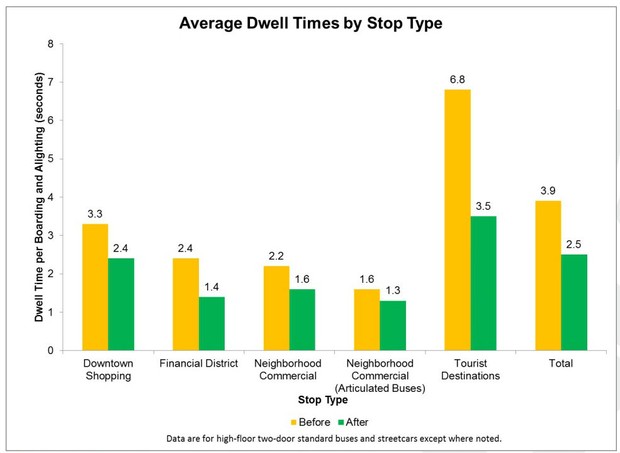JeffDowntown
Senior Member
- Joined
- May 28, 2007
- Messages
- 4,795
- Reaction score
- 3,662
Woo hoo! The data has begun to flow and the Final Report is available from San Francisco Muni Bus' switch to all-door boarding, and it looks great. Fare evasion unchanged (down slightly), but boarding time per rider is sped way up, and overall buses are dwelling for shorter (and more predictiable) periods of time--raising average trip speeds and (one presumes) improving schedule performance.
Any system with fairly high boardings per bus (Boston is high but not tops as we learned upthread) can see the biggest gains from uncongesting the boarding process.
This is *exactly* the kind win that the T should be looking for if it is to reinvent itself with both faster/oftener service and lower costs. It is one of those Southwest Airlines moments where customers get happier, trips get faster, unions get more productive (justifying decent wages), and capital gets used more efficiently.
At the cost of rear-door electronic readers and 13 new inspectors, time per passenger boarding has been sliced and dwell times are down too.

The T should pilot this on the Silver Line Washington. It suffers a ton due to slow boarding at major stops.
